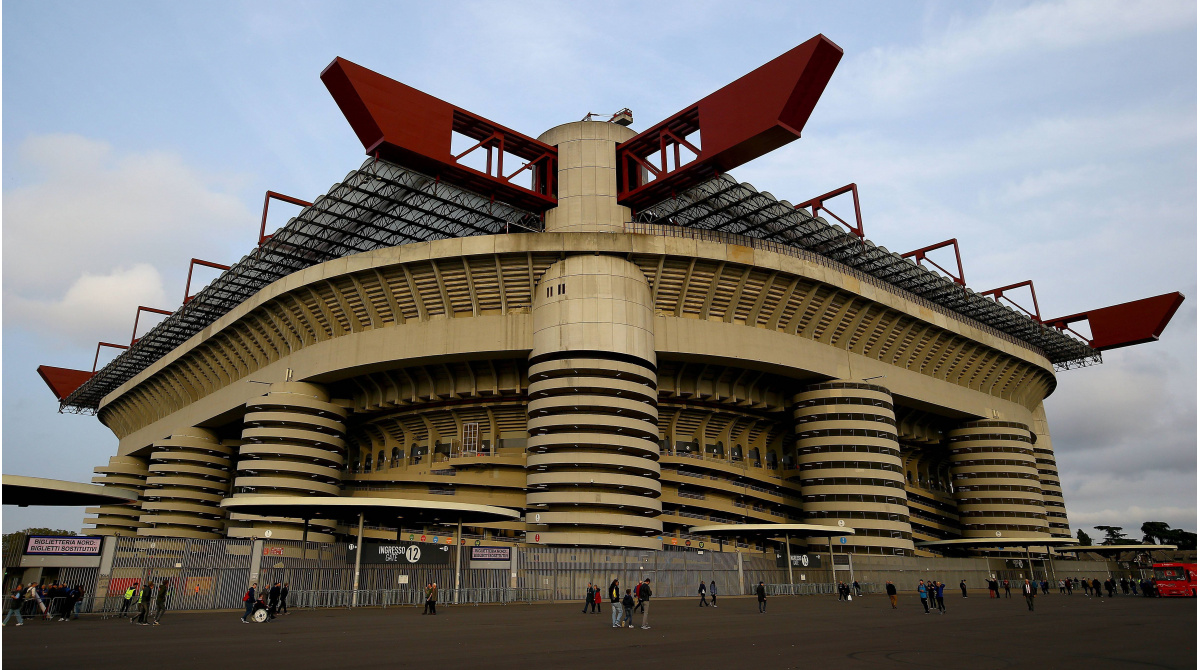In der Liga kriegt es Inter echt nicht mehr hin... man läuft zur 60. Minute einem 0:1 (zuhause) gegen Lazio hinterher... das ist natürlich ein 6-Punkte-Spiel im Hinblick auf die Top 4 Plätze und wenn das heute verloren geht, dann ist der Zug wohl wirklich abgefahren.
Du verwendest einen veralteten Browser. Es ist möglich, dass diese oder andere Websites nicht korrekt angezeigt werden.
Du solltest ein Upgrade durchführen oder einen alternativen Browser verwenden.
Du solltest ein Upgrade durchführen oder einen alternativen Browser verwenden.
Serie A 2022/2023
- Ersteller nbatibo
- Erstellt am
Bock von Lazios Verteidiger und Lautaro gedankenschnell - 3:1 in der 90. Minute, Deckel drauf! Geil!!
Übrigens netter Nebeneffekt: Durch Inters Sieg kann Napoli den Scudetto heute fixieren
Übrigens netter Nebeneffekt: Durch Inters Sieg kann Napoli den Scudetto heute fixieren
Zuletzt bearbeitet:
unicum
#22
Gosens erlitt bei seinem akrobatischen Tor + Sturz direkt auf den Oberkörper übrigens eine ausgekugelte Schulter, die wieder eingerenkt werden musste. Noch ist nicht klar wie lange er ausfallen wird, verdammt schmerzhaft ist sowas jedenfalls. Get well soon Robin
- Beiträge
- 7.495
- Punkte
- 113
So, jetzt ist es dann endlich soweit: Glückwunsch an Neapel, sowas von verdient und schön, dass mal jemand anderes Meister wird als Juve/Milan/Inter, mit Ausnahme der Titel von Lazio und Roma 2000 und 2001 hab ich das noch nicht erlebt, seit ich die Serie A verfolge 
Die hatten schonmal ein paar Jahre und Spieler, die dazu in der Lage schienen (Hamsik, Mertens, Insigne usw.), dieses Jahr war die Mischung und v.a. auch eben Spalletti sehr gut.
Bin gespannt, wie es in Neapel abgehen wird, gibt ja ein bisschen Befürchtungen, dass es sehr ausarten wird, was anderes (im positiven und negativen Sinn) könnte man sich bei der Stadt auch kaum vorstellen.
Die hatten schonmal ein paar Jahre und Spieler, die dazu in der Lage schienen (Hamsik, Mertens, Insigne usw.), dieses Jahr war die Mischung und v.a. auch eben Spalletti sehr gut.
Bin gespannt, wie es in Neapel abgehen wird, gibt ja ein bisschen Befürchtungen, dass es sehr ausarten wird, was anderes (im positiven und negativen Sinn) könnte man sich bei der Stadt auch kaum vorstellen.
unicum
#22
THEKAISER99
Social Media Team
- Beiträge
- 17.178
- Punkte
- 113
Streamff - Easy video sharing
With Streamff service you can share your video in two clicks, as easy as it sounds.
Nettes Solo von Theo. Kann man mal so machen.
Milan gewinnt das sehr wichtige Spiel zuhause gegen Lazio, Leao musste allerdings früh verletzt raus und man wird sehen ob er bis Mittwoch fit wird.
Inter ebenso mit einem gaaanz wichtigen Dreier bei der Roma im Kampf um die CL-Plätze, die Mailänder zeigen den Römern heute also wo der Bartl des Most und die CL-Quali holt
 Sieht nach einer tollen Form beider Clubs aus, wir können uns auf ein episches Derby della Madonnina freuen!
Sieht nach einer tollen Form beider Clubs aus, wir können uns auf ein episches Derby della Madonnina freuen!
Inter ebenso mit einem gaaanz wichtigen Dreier bei der Roma im Kampf um die CL-Plätze, die Mailänder zeigen den Römern heute also wo der Bartl des Most und die CL-Quali holt
tennisfun
Bankspieler
- Beiträge
- 16.291
- Punkte
- 113
Die Liga und ihr Stadion Problem.

 www.transfermarkt.de
www.transfermarkt.de

Milan-Boss Furlani: „Leeds & Brentford überbieten uns“ – Uralt-Arena finanzieller Faktor
AC Milan steht im Halbfinale der Champions League, doch auf dem Transfermarkt dueliert man sich mit kleineren englischen Klubs um Spieler. Das alte Stadion...
Sehr informative und detaillierte Analyse in diesem Forbes Gespräch mit Inter CEO Marotta zum Business-Problem (vor allem im Vergleich zur PL) der Serie A und wie man nun auch mittels Investoren versuchen muss, die Umsätze zu steigern. Es zeigt sich ja nicht nur diese Saison, dass die Serie A Klubs auf internationaler Bühne wieder durchaus konkurrenzfähig sind und werden. Gerade aber die hohen Kader- und Gehaltskosten stehen den anderen Ligen/Klubs in der Relation zu den Einnahmen und Umsätzen deutlich hinterher:

 www.forbes.com
www.forbes.com
Italy’s wealthiest clubs, Juventus and Inter Milan, respectively have a wage-over-revenue ratio of 84% and 82%, Deloitte Football Money League 2023 reveals. Those percentages rank them above all of the world’s top-10 wealthiest soccer clubs with the sole exception of French powerhouse Paris Saint-Germain.
While the labor cost remains high, Marotta emphasized the Italian clubs’ inability to exploit matchday ticketing and hospitality, a key revenue stream in elite soccer but one in which Italy still lags behind with respect to the rest of Europe.
Only four out of 20 Serie A sides currently own a stadium, while the remaining 16 teams are just tenants of outdated venues that offer limited on-site services and a modest matchday experience compared to what soccer fans are used to feeling, watching and doing at live events in stadiums abroad.
Building new facilities or upgrading the existing ones, however, can be very tricky for Italian clubs. Many Serie A foreign owners - most of whom hail from the U.S. - have tried getting new stadium projects underway but ended up butting their head against the sturdy wall of Italian bureaucracy.
The disproportion between revenue and costs makes the Italian soccer clubs’ finances incredibly reliant on their ability to succeed on the pitch, as teams raise a big chunk of their annual revenue through the prize money allocated for international and domestic tournaments.
“Sporting results play too big of a role with respect to a club’s total potential proceeds. On both the domestic and international level, the revenue distribution is affected by a team’s position at the end of the season,” said Marotta.
This season, for instance, Inter Milan have racked up over €80 million for having reached the UEFA Champions League semifinal and could pocket another €20 million for going all the way, a sum that would represent about a third of their total amount considering that last year’s revenue added up to €308 million per Deloitte. In turn, being left out of Serie A’s top-four race, and thus failing to qualify to the next UEFA Champions League edition, would be a massive financial hit.

‘We Need A New Business Model’: Giuseppe Marotta Calls For Urgent Changes To Italian Soccer
What is crystal clear for Marotta is that the current system has reached a breaking point. “In Italy, the sports model is still predominant over any kind of economic and financial control tool. It’s too aleatory."
 www.forbes.com
www.forbes.com
Lukaku mit dem Doppelpack zum 4:2 für Inter gegen Sassuolo, Milan verliert bei Spezia und Inter zieht auf Rang 3 an Lazio vorbei… Joah wies scheint hat Inter wirklich zur absolut wichtigsten und besten Zeit den Schalter gefunden und läuft zur Bestform auf. Am Dienstag bitte Da Capo!
nbatibo
NBA Mockdraft-Champ 2022
- Beiträge
- 62.549
- Punkte
- 113

